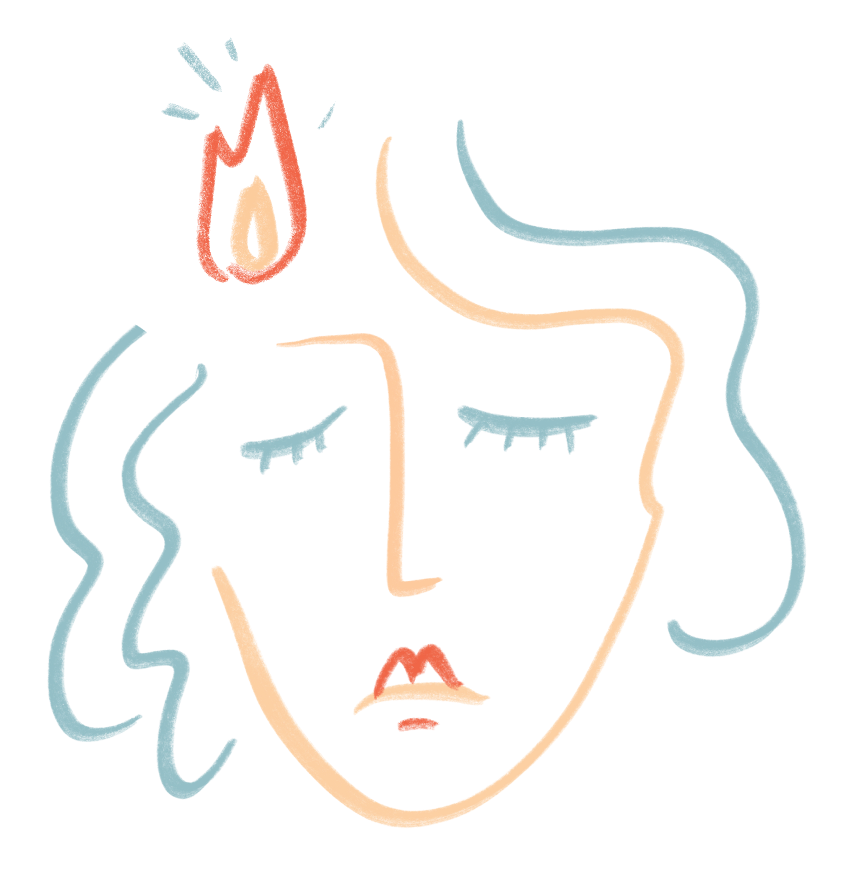LOW CONFIDENCE DEFINITION
Low self-esteem or low confidence is when you lack confidence in yourself – who you are and what you can do. You often have a negative perception of your self-worth and perceived value. It can affect your mood, relationships, home life and work.
Start your free online menopause assessment to see if HRT is right for you

HOW LIKELY IS LOW CONFIDENCE?
Low confidence can impact anyone at any age but can be particularly pervasive in menopause. It’s difficult to put an exact figure on it, but:
- Menopausal women report feeling less confident in their work abilities
- Levels of confidence and self-esteem typically peak around middle age and then decline after 60
- Declines may be attributed to factors such as age stereotypes, retirement, and declining health
Read more about the stages of menopause.
HOW CAN YOU EASE LOW CONFIDENCE SYMPTOMS?
Unlike some physical symptoms of menopause, low confidence and self-esteem cannot be so easily fixed with creams or medicines. It takes time and energy but can be a unique opportunity to make positive changes. No one chooses to go through menopause, and while you might not always feel ready to embrace change, it can be a great opportunity to rethink your life and direction.
Build a new narrative of yourself
Cognitive behavioral therapy (CBT) is a helpful method of identifying thought patterns and how they impact your emotions and behaviors. Another way of shifting negative self-talk is to remind yourself of the things that you like and value by asking yourself:
- What is something that you love about yourself?
- What is something that you appreciate about yourself?
- What is something that others recognize you for?
- What are some of your other outstanding qualities?
Test your perception
Perception is powerful and can play a big role in self-esteem. When you next go out, imagine that the first three people you interact with think you are absolutely amazing. What does this do to your posture and how you hold your body? How do you feel about yourself? Then imagine that the next three people you interact with think you are incapable or inadequate. What does this do to your mood? How secure do you feel? This exercise helps to highlight how powerful your sense of perception is and how it can affect your mood.
Promote more positive thoughts
When you look in the mirror, you may see yourself through the eyes of other people. Next time you look in the mirror, give yourself a big smile. Compliment yourself and flirt with yourself. This might feel silly at first but it is a simple way of challenging narratives and promoting positive and conscious thoughts. Most people initially go to their flaws rather than strengths and that is okay. Acknowledge any negative thoughts and push them away.
Prioritise self-care
Self-care is important for a healthy relationship with yourself. Take this as your cue to slow down and remind yourself of what is important…YOU. Between work, family and other obligations, you can often forget the importance of taking time to check in with how you are feeling. Set aside 15-30 minutes to remind yourself that you are capable and worthy.
Say no to the things that don’t serve you
Doing more activities that you love and resonate with your values can help bolster your self-esteem. When you spend all of your energy trying to make others happy, you send yourself a message that you’re less important.
Consider taking a social media break
Social media can prompt further comparisons between yourself and others – heightening feelings of inadequacy. Try taking a break from social media, even for just a day and notice how you feel.
Ditch the perfectionist mindset
We all make mistakes from time to time – we’re human. Often when you have low self-esteem, you don’t give yourself permission to make mistakes. Mistakes are normal – try viewing them as an opportunity for growth instead of a justification for a lack of self-love.
Balance your lifestyle
Don’t underestimate the power of exercising regularly, eating well, and getting plenty of sleep – it can do wonders for your self-esteem.
Would hormone replacement therapy (HRT) help?
It might. HRT is proven to help with hot flushes, night sweats and mood changes, sleep, among others.
However, it is not suitable for everyone. Speak to your doctor if you would like to find out more about the best treatment for you.





